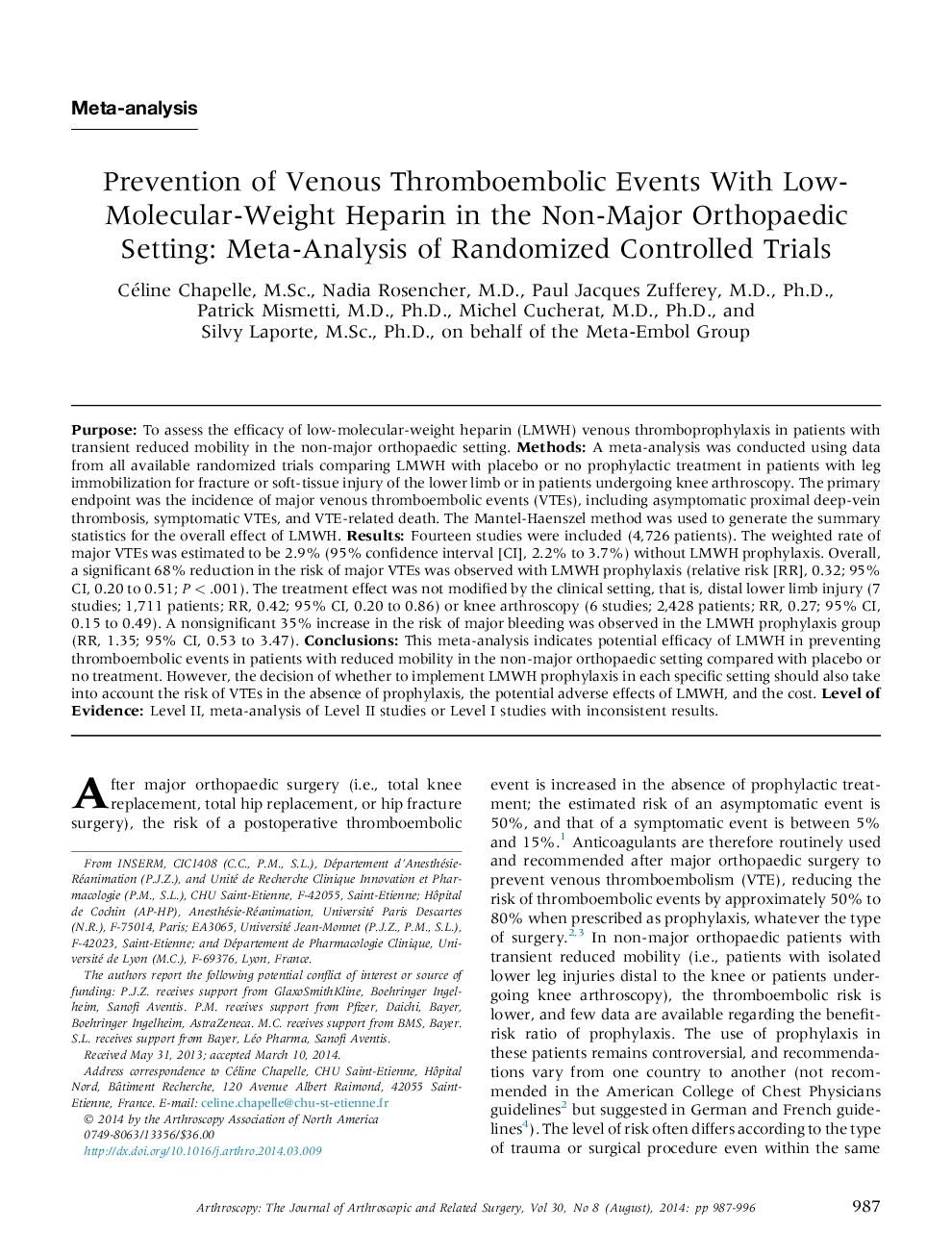| Article ID | Journal | Published Year | Pages | File Type |
|---|---|---|---|---|
| 4043019 | Arthroscopy: The Journal of Arthroscopic & Related Surgery | 2014 | 10 Pages |
PurposeTo assess the efficacy of low-molecular-weight heparin (LMWH) venous thromboprophylaxis in patients with transient reduced mobility in the non-major orthopaedic setting.MethodsA meta-analysis was conducted using data from all available randomized trials comparing LMWH with placebo or no prophylactic treatment in patients with leg immobilization for fracture or soft-tissue injury of the lower limb or in patients undergoing knee arthroscopy. The primary endpoint was the incidence of major venous thromboembolic events (VTEs), including asymptomatic proximal deep-vein thrombosis, symptomatic VTEs, and VTE-related death. The Mantel-Haenszel method was used to generate the summary statistics for the overall effect of LMWH.ResultsFourteen studies were included (4,726 patients). The weighted rate of major VTEs was estimated to be 2.9% (95% confidence interval [CI], 2.2% to 3.7%) without LMWH prophylaxis. Overall, a significant 68% reduction in the risk of major VTEs was observed with LMWH prophylaxis (relative risk [RR], 0.32; 95% CI, 0.20 to 0.51; P < .001). The treatment effect was not modified by the clinical setting, that is, distal lower limb injury (7 studies; 1,711 patients; RR, 0.42; 95% CI, 0.20 to 0.86) or knee arthroscopy (6 studies; 2,428 patients; RR, 0.27; 95% CI, 0.15 to 0.49). A nonsignificant 35% increase in the risk of major bleeding was observed in the LMWH prophylaxis group (RR, 1.35; 95% CI, 0.53 to 3.47).ConclusionsThis meta-analysis indicates potential efficacy of LMWH in preventing thromboembolic events in patients with reduced mobility in the non-major orthopaedic setting compared with placebo or no treatment. However, the decision of whether to implement LMWH prophylaxis in each specific setting should also take into account the risk of VTEs in the absence of prophylaxis, the potential adverse effects of LMWH, and the cost.Level of EvidenceLevel II, meta-analysis of Level II studies or Level I studies with inconsistent results.
